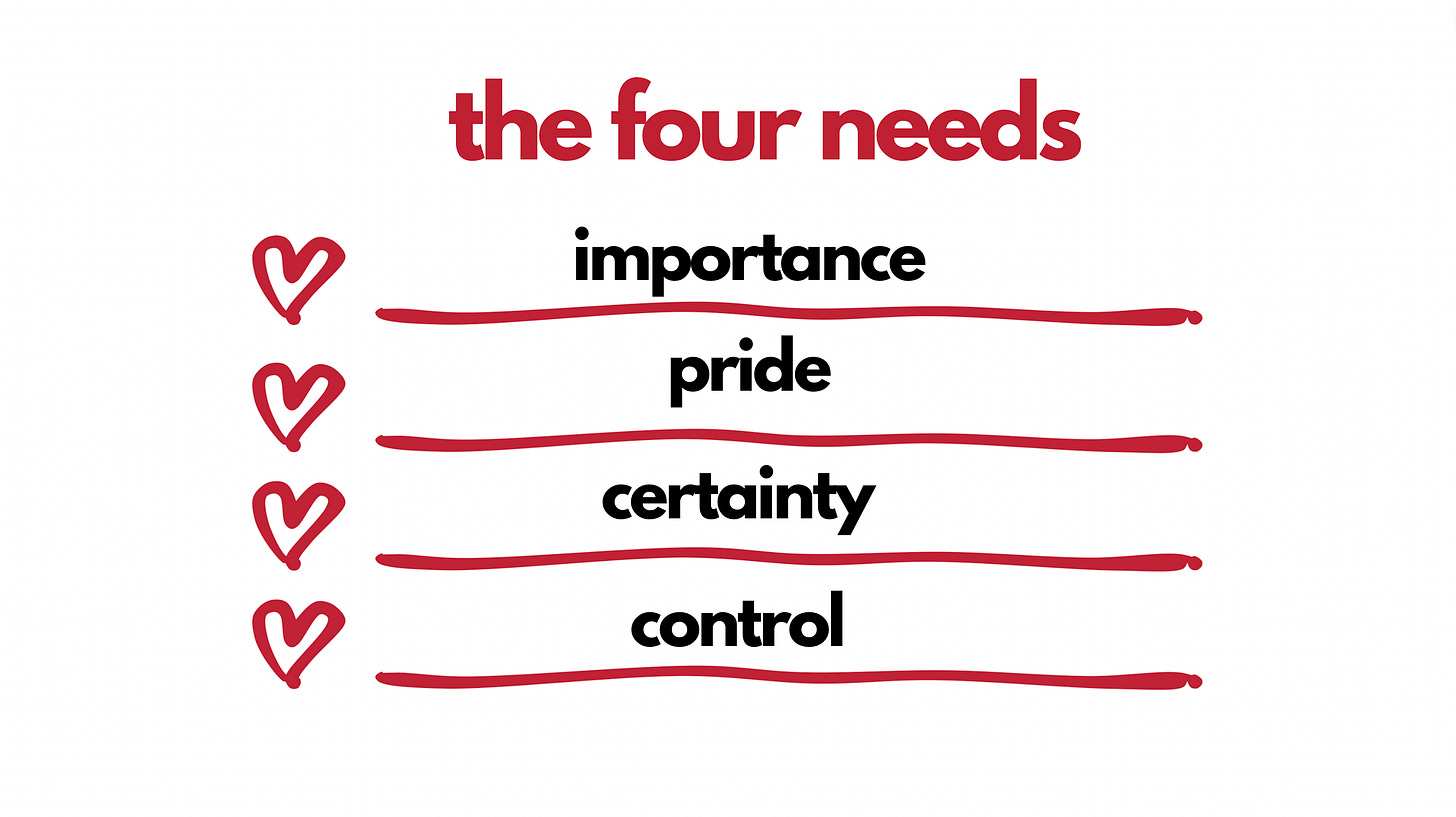Here’s the recording from our webinar all about storytelling
(You may need to log in to watch the full session for free.)
Download the webinar notebook to take notes as you watch the video.
Storytelling as Marketing
We tell stories all the time. This is something that comes naturally to us, but for some reason, when it comes to marketing, we take on another language or another persona that isn’t personal and it certainly isn’t us.
Storytelling is a great way to transform our marketing into something even more powerful, something we call moments of time well spent. So here are some techniques for turning your marketing into storytelling in which you can make an impact and differentiate your message to your clients, friends, sphere of influence, prospects and colleagues.
We are Storymakers
You know me, once I start telling stories, we'll go all day if we want. And that's because I love stories. Speaking of stories here's a quick one. As I was brushing my teeth the morning right before recording this webinar, my mentor texted me a quote, so I thought I would just start with it this morning.
He said he's reading a new book called Braiding Sweetgrass, written by a Native American Ph.D. in chemistry, and it opens with this wonderful quote,
“We are storymakers, not just storytellers.”
I think it's a wonderful way to think about what we're doing when we tell a story: we're also making a story with our audience. Whether it's one-on-one, or whether it's in a large broadcast format, written in a newsletter, or shared on social media, we’re actually making stories as well as telling stories.
The Future Belongs to Storytellers - and That Means YOU!
I think that storytellers in our society and around the world have always been able to catch people's attention and shape a bit of their future. I think this is particularly true in the business of helping people in the journey of home ownership.
Remember, homeownership is just a vehicle for helping people become the next best version of themselves. And so storytelling is a powerful tool for envisioning that person. And in comparison to some of the content that's being produced out there, which is mainly fear-based and anxiety-driven, I think that storytelling is a treat.
It's a treat for us to create. It's a treat for us to share with our customers and clients who can have a chance to take a deep breath and envision a different way of thinking about what is important to them.
So we should focus on doing storytelling better!
Also Because Advertisers are Insane!
The funny thing about advertising is something happens when you start thinking about advertising versus storytelling….
Look at this crazy, block of text below. Some years ago, when I was about to prepare my first Storytelling Workshop. I was listening to the radio and this ad came on to Bloomberg radio. And as I was getting ready for my class, I was listening to this and I thought, “This is utterly insane.”
For example….
Read this out loud and tell me if this sounds like a good advertising campaign. Does this inspire you to pick up the phone and give these guys a call?
First of all, there are way too many big nonsense words in here. And secondly, I have no idea what half of those words mean. How am I supposed to connect with it as a customer? We see this all the time, which is why I think too many advertisers are insane. They get all caught up in sounding “official” and “important” and use jargon - and ultimately have NO connection to the audience.
I want you to FORGET about advertising speak. I want to give you the opportunity. instead of using storytelling to effectively connect with your audience.
BUT this Insanity Exists in Real Estate Too
Let me show you a listing I found on a major real estate portal…
Download the whole slide deck and see more about how to tell great stories and my top formula for how to share effective stories for your marketing … 👇👇👇
Let’s imagine you're selling a beautiful home that has a wonderful lake view in the back. (This is an actual listing description from Realtor.com for a $2 Million property.)
Ask yourself: Do you think that the multi-million buyer is shopping by HOA fees??
Or “new construction just steps away from CVS” ?
Or a modern floor plan that's “unencumbered by walls”.
(Someone obviously played Scrabble the night before…)
This is what happens when shift into advertising speak instead of simply telling a story. I am betting there is a story to tell about that beautiful home and what it's like to live in it. But instead, the property was dissected into its parts, and broken down into the least interesting aspects.
With no emotions! That’s called feature dumping and it doesn’t exactly inspire connection.
What if We Told a Story Instead?
I gave that ad to a class and asked them to use storytelling instead to replace the description. This was one I thought was cool. The author of this version suggested that we switch the photo, and then “step inside” to experience the property.
You can hear and feel and see the difference.
The difference between feature dumping and drawing a picture or a moment in people's minds. Asking the reader to imagine what it will be like to live and work and play and raise a family in that space.
And experience what the space can evoke.
Storytelling is Connecting
Storytelling going to work in property advertising, personal advertising, and social media advertising. It takes us away from the sea of sameness. It moves us into an emotional space to get people connected to the product - or to ourselves.
Why is that important? We must connect because we've got to get them to look up. If all you're doing is showing data, stats, charts, graphs, etc. you're missing an opportunity to get them to look up. And maybe look forward to your next piece, your next ad, your next newsletter, your next social media post.
Imagine that! Getting people to anticipate your next piece of content - even though it’s really an ad!
You can do that by getting them to feel like a story has to be told.
Storytelling Creates Value Proposition
Storytelling is something you've done your whole life. It's something you've had done to you by family, friends and mentors. It helps you address compelling questions about yourself, life and your experience.
Storytelling helps us address critical questions that our audience has about us. And helps us create value proposition between us. Questions like:
Why me? Why should I choose you or your organization?
What’s happening? Can you describe what’s happening, not just in the market but with your particular product or service?
How can I benefit now? Can I benefit from just knowing you, and being connected to you?
Your audience wants to benefit from their relationship with you long before, during and long after a transaction. Which is more important than ever because - if you watched our earlier webinar on consumer trends - you remember that the average tenure in a home today has gone well past 10 years on average.
You have to stay connected for a long time - and what better way to do that than by sharing the stories of our lives, career and contributions in the marketplace? Yes, most people know what you do for a living, but they're also staying connected to you in between the times they need your professional help.
So that's where we're going to focus some of our storytelling.
Download the Slide Deck
How can we Tell Better Stories?
The Four Needs of Every Relationship
Every relationship has four essential needs. We can use these to craft our stories and build strong messaging for our audience. So, what are these needs?
You have to help people feel important, have pride in the relationship with you, be certain that they're better off with you than without you, and have a sense of control over the relationship. When you focus on those emotional needs - of the relationship - you can then help tell stories that suggest steps people can take to achieve something important - with your help!
Your Own A.I. Story Generator
I’m often asked about using AI to generate marketing content or stories. And although AI can be a useful tool, like spellcheck or image software, it’s only as good as the data inside and the prompts we feed it. But there’s also a much better AI at your disposal. It’s called:
YOU!
To write stories that connect with your people, use your own AI. The one built into your head. The one that can relate the emotional needs of your audience to the value proposition you’ll offer them by telling a relevant story.
The Four Step Process
Over the years, I’ve developed a four-step process for telling a story.
It involves four simple stages:
Message.
Anecdote.
Teachable.
Try.
Message: First, what's the message? The message is easy to figure out. Go back to the emotions. So which of the four emotions do you want to fill? If you want people to feel significance, then tell a story that says you're valuable to me in between the lines. Stories can easily express You're worth it. I appreciate you. I am grateful for you.
Anecdote: Next, share a quick anecdote. This is the simplest of all storytelling techniques. Pick a real-life experience and tell it succinctly. Anecdotes start like this:
Just the other day...
Just last week…
A couple of weeks ago…
Once upon a time…
Keep it real - something that happened to you. And keep it easy to understand - not a complicated scenario or situation. People should be able to absorb the story on “half-power” in their minds.
Teachable: Third, share what you learned and here's how it helped you get better. What simple lesson, conclusion, insight or a-ha did the anecdote offer you? And connect the dots between your experience and the emotion that you want the audience to feel. Don’t make this too complex - you don’t need to create a checklist or multi-step process to get the teachable point across. And you don’t want to sound preachy. Just a gentle lesson that helps the audience get better as a result of the story.
Try: Finally, wrap up the story by encouraging the audience to take action - to try! Give them a gentle push to take the story - which is also marketing, don’t forget! Your story should always end on an optimistic note that leaves the audience with a sense of excitement to give it a try, too.
So, that’s the formula.
Message. Anecdote. Teachable. Try.
And if you can’t remember, just look at the words to see:
M.A.T.T.
(Hmmmm now that’s easy to remember!)
The Future Belongs to the Storytellers
Ultimately, what is storytelling?
It's just YOU doing YOU being YOU.
And you’re always the ultimate advantage of any story and any journey that you can take people on. The benefit of being connected with - and doing it with - YOU.
This is why storytellers have so many more options - and opportunities - to help people enjoy, grow and most of all - achieve - what's important to them.
All because you’ve told them a story - instead of an advertisement.





















Share this post